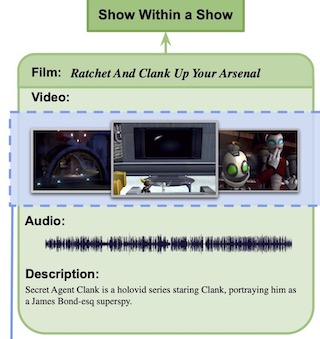TrUMAn: Trope Understanding in Movies and Animations
Understanding and comprehending video content is crucial for many real-world applications such as search and recommendation systems. While recent progress of deep learning has boosted performance on various tasks using visual cues, deep cognition to reason intentions, motivation, or causality remains challenging. Existing datasets that aim to examine video reasoning capability focus on visual signals such as actions, objects, relations, or could be answered utilizing text bias. Observing this, we propose a novel task, along with a new dataset: Trope Understanding in Movies and Animations (TrUMAn), intending to evaluate and develop learning systems beyond visual signals. Tropes are frequently used storytelling devices for creative works. By coping with the trope understanding task and enabling the deep cognition skills of machines, we are optimistic that data mining applications and algorithms could be taken to the next level. To tackle the chal- lenging TrUMAn dataset, we present a Trope Understanding and Storytelling (TrUSt) with a new Conceptual Storyteller module, which guides the video encoder by performing video storytelling on a latent space. The generated story embedding is then fed into the trope understanding model to provide further signals. Experi- mental results demonstrate that state-of-the-art learning systems on existing tasks reach only 12.01% of accuracy with raw input signals. Also, even in the oracle case with human-annotated de- scriptions, BERT contextual embedding achieves at most 28% of accuracy. Our proposed TrUSt boosts the model performance and reaches 13.94% performance. We also provide detailed analysis to pave the way for future research. TrUMAn is publicly available at: https://www.cmlab.csie.ntu.edu.tw/project/trope

